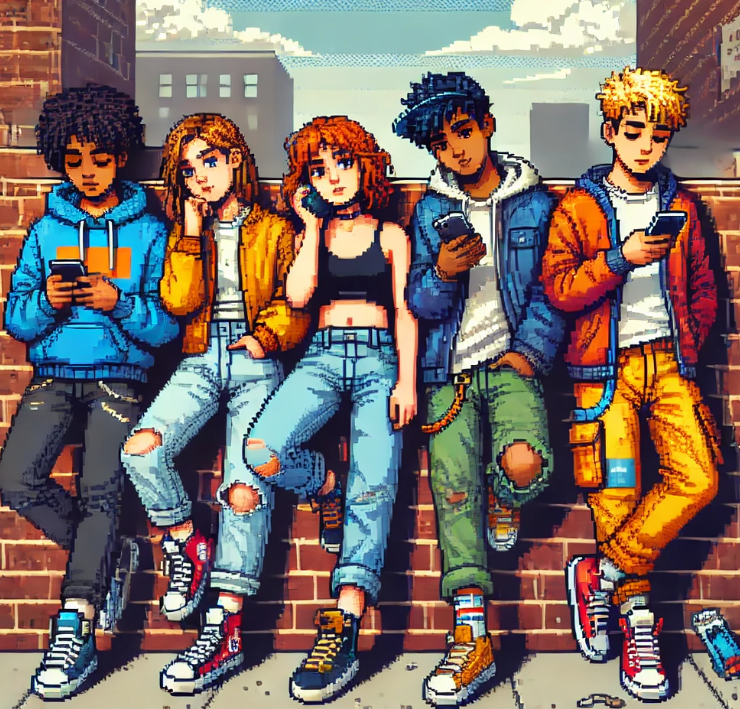
The Hidden Ways Microaggressions Shape LGB Sexual Health (And What We Can Do About It)
Picture this: You’re a teenager trying to navigate the whirlwind of hormones, identity, and figuring out who you’re attracted to. But instead of getting clear, helpful information, you’re hit with weird comments from family, side-eyes from classmates, and a sex-ed curriculum that assumes everyone is straight. 😑
For lesbian, gay, and bisexual (LGB) young adults, these subtle (or not-so-subtle) jabs—also known as sexual orientation microaggressions (SOMs)—don’t just hurt emotionally. They can mess with their understanding of sexual health, shape risky behaviors, and even affect access to healthcare.
So, what’s really going on? Let’s dive into the latest research that breaks down how microaggressions shape sexual health knowledge and behaviors in LGB young adults—and what we can do about it.
🔍 What Did the Study Find?
Researchers sat down with 17 LGB young adults (average age: 20) to talk about how their experiences with SOMs shaped their attitudes toward sexual health. Through deep discussions, they uncovered four major themes that kept coming up:
1️⃣ The “It’s Just a Phase” Effect (Early Family Messaging)
Ever been told “You’ll grow out of it” or “It’s just a phase”? Many LGB young adults heard this from family members who brushed off their identities as temporary confusion.
🚨 Why It Matters: When your family doesn’t take your identity seriously, it can lead to self-doubt, anxiety, and a lack of open conversations about sexual health. Instead of getting real info, many were left to figure things out alone—or worse, internalize the idea that their sexuality was abnormal.
“I told my mom I had a crush on a girl, and she laughed it off like I’d be into boys next year. It confused me because I knew I wasn’t straight.” — Alex, Lesbian
2️⃣ “God Loves Everyone—Except You?” (Religious Persecution)
For some participants, religious institutions played a major role in shaming and silencing their sexual identities. This was especially true for Black LGB individuals, who noted that the “Black church” was often harsher in condemning homosexuality.
🚨 Why It Matters: When young people are told their identity is a sin, they’re more likely to feel shame, hide who they are, and even avoid discussing sexual health altogether. Some tried to “pray the gay away,” while others completely disconnected from their faith.
“It makes you wonder why God made you this way. I actually tried to be less attracted to guys.” — Corbin, Gay
3️⃣ The “No Homo” Problem (Coping & Resilience Strategies)
LGB young adults experience constant microaggressions—from peers dismissing their relationships as less valid to hearing casual slurs like “that’s so gay.” Many developed thick skin, found support in friends, and learned to push back against the hate.
🚨 Why It Matters: While resilience is great, constantly fighting for basic respect is exhausting. Some participants talked about hiding their sexuality in certain settings, while others spoke out when faced with ignorance.
“I still get mad when people say ‘No homo.’ Like, why is being gay an insult?” — Chris, Gay
4️⃣ “Sex Ed Flopped—Again” (Sex Education & Misinformation)
Sex ed in schools already barely covers the basics, and for LGB students? It’s even worse. Many were taught that sex is only for procreation (spoiler: it’s not!), or were told outright lies like “HIV is a gay man’s disease.” 🤦
🚨 Why It Matters: When people aren’t given accurate information, they’re left with myths, misinformation, and risky assumptions. Some participants believed lesbians couldn’t get STIs, while others thought bisexual men were inherently more promiscuous.
“My teacher literally told me HIV started with gay men in the ‘70s. She said I should ‘think twice before acting on my feelings.’” — Iman, Bisexual
💡 What Can We Do? (Practical Takeaways)
So, how do we make sure LGB young adults get the right information and the respect they deserve? Here’s what needs to happen:
✅ 1. Fix Sex Ed—For Everyone
Sexual health education needs to include LGB experiences, provide accurate STI info for all orientations, and ditch the outdated “only for reproduction” nonsense. Schools should:
- Teach that STIs affect everyone, not just gay men.
- Talk about safe sex practices for same-sex couples.
- Provide affirming resources for LGB students.
✅ 2. Stop Treating LGB Identities as a “Phase”
Parents, teachers, and healthcare providers need to listen to and affirm LGB identities without dismissing them. Instead of “You’ll grow out of it,” try:
- “That’s great! How can I support you?”
- “I’m here if you ever want to talk about relationships or sex.”
✅ 3. Call Out Harmful Language & Stereotypes
We’ve all heard things like “You don’t look gay” or “Bisexuals are just confused.” These statements might seem minor, but they reinforce harmful myths that impact real lives.
- If you hear someone dismissing LGB relationships, speak up.
- If your friend uses outdated or offensive terms, correct them.
- If you’re unsure about something, do a quick Google search (or, you know, ask respectfully).
✅ 4. Push for LGB-Inclusive Healthcare
Doctors, therapists, and educators must do better at providing non-judgmental, inclusive care. That means:
- Not assuming everyone is straight.
- Asking for and respecting people’s pronouns and identities.
- Getting trained on LGB-specific sexual health concerns.
“My doctor doesn’t even know I’m gay. I don’t trust that he’d understand my concerns.” — Shawn, Lesbian
🎤 Let’s Talk About It!
This research highlights just how deep microaggressions run in shaping LGB young adults’ sexual health and identity. But now that we know better, we can do better.
💬 What’s your experience? Have you seen these microaggressions in action? What do you think schools and families should do differently? Drop a comment below and let’s keep this conversation going! ⬇️
📢 Share this post! The more people who understand these issues, the better we can fight back against harmful misinformation. Let’s make sexual health education inclusive, accurate, and affirming for everyone! 🚀


